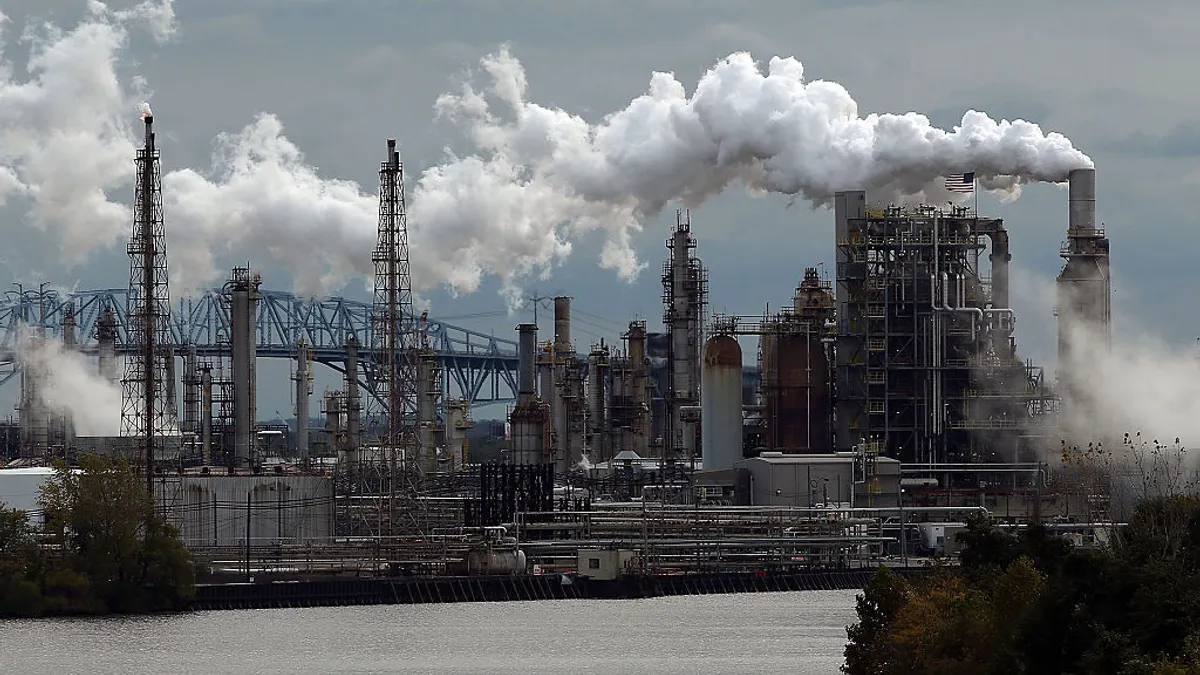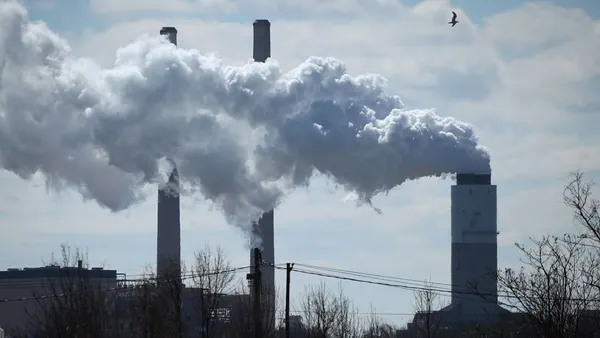Dive Brief:
- A Pennsylvania judge dismissed a lawsuit that Bucks County brought against a group of oil majors and the American Petroleum Institute on Friday with prejudice, meaning the county will not have an opportunity to refile.
- Bucks County Court of Common Pleas Judge Stephen Corr disagreed with the oil industry defendants — which included BP, Chevron and ExxonMobil, among others — that the county lacked the capacity to sue and the court lacked the personal jurisdiction to decide the case. However, he ruled the court was “compelled to dismiss” the case because it lacked the subject matter jurisdiction, according to court documents.
- The oil industry has had varying levels of success in defending itself against state and locality-led litigation seeking to hold companies financially liable for the physical impacts of climate change. Oil companies have seen cases brought by New Jersey and New York City dismissed this year, while bids to dismiss lawsuits from Connecticut, California and the city and county of Honolulu, Hawaii have thus far been unsuccessful.
Dive Insight:
Bucks County’s lawsuit was filed in March 2024, alleging that the major oil companies and API deceptively marketed their products, which have “exacerbated the costs of adapting to and mitigating” the impacts of climate change. The suit also claimed that Bucks County “has suffered, is suffering and will continue to suffer injuries” due to the defendants’ conduct. ConocoPhillips, Phillips 66 and Shell were also among the companies named as defendants in the lawsuit.
Corr ruled in his motion to dismiss that the lawsuit failed “to state a claim upon which relief can be granted because Pennsylvania cannot apply its own law to claims dealing with air in its ambient or interstate aspect.”
“Today we join a growing chorus of state and federal courts across the United States, singing from the same hymnal, in concluding that the claims raised by Bucks County are not judiciable by any state court in Pennsylvania,” Corr wrote.
Bucks County argued that it was not seeking to regulate greenhouse gas emissions, but seeking compensatory damages for what it alleged was deceptive marketing practices from the defendants. If the case were focused on regulating the emissions of the companies, that would fall into federal court jurisdiction, as those laws and regulations are governed by the Environmental Protection Agency and the Clean Air Act, according to the May 16 motion.
However, Corr aligned his decision with the dismissal of New York City’s climate lawsuit, altering a quote from a Second Circuit Court of Appeals decision in that case, and said “artful pleading cannot transform [Bucks County's] Complaint into anything other than a suit over global greenhouse gas emissions.”
“While Bucks County does everything it can to avoid the issue of emissions, it cannot avoid the fact that if there were no emissions there would be no damages,” he said.
The Pennsylvania judge said the county has looked to make the case about the deceptive marketing aspect because it “recognizes the inescapable fact that if this case is about emissions, Pennsylvania courts have no subject matter jurisdiction.” Corr found the court lacked the jurisdiction due to a finding that any cause of action in the complaint are “so intertwined with emissions.”
Bucks County Commissioner Chair Diane Ellis-Marseglia said when announcing the complaint that the lawsuit is the jurisdiction’s “tool to recoup costs and fund public works projects like bolstering or replacing bridges, retrofitting county-owned buildings and commencing storm water management projects.”
The annual number of climate lawsuits against the largest fossil fuel producers have nearly tripled since 2015, and a recent Trump executive order ordered Attorney General Pam Bondi to take actions to state and jurisdictional civil actions against oil producers. While the Biden administration had previously dissuaded the Supreme Court from intervening in cases about jurisdiction and state-level climate lawsuits, Bondi could potentially direct the Department of Justice to support oil producers in future litigation.











